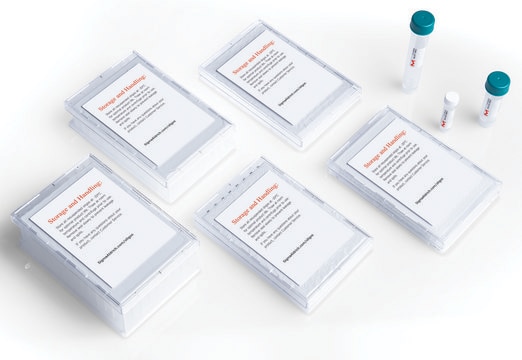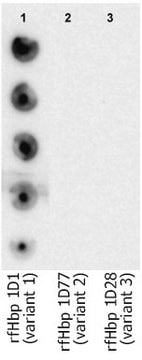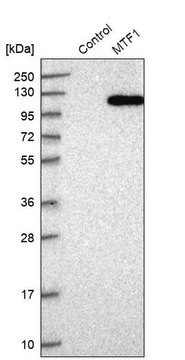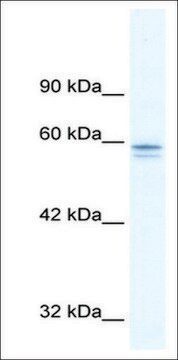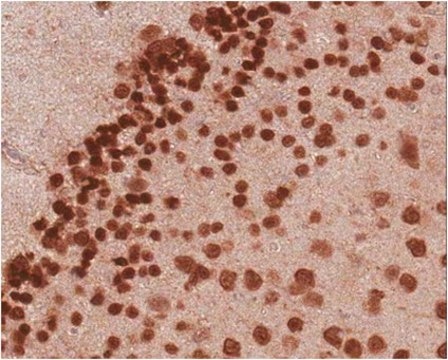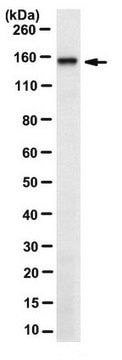MABF268
Anti-IRF3 Antibody, clone SL-12
clone SL-12, from mouse
Synonym(s):
Interferon regulatory factor 3, IRF-3
About This Item
Recommended Products
biological source
mouse
Quality Level
antibody form
purified antibody
antibody product type
primary antibodies
clone
SL-12, monoclonal
species reactivity
human, mouse
technique(s)
immunocytochemistry: suitable
immunoprecipitation (IP): suitable
western blot: suitable
isotype
IgG1κ
NCBI accession no.
UniProt accession no.
shipped in
wet ice
target post-translational modification
unmodified
Gene Information
human ... IRF3(3661)
General description
Immunogen
Application
Immunoprecipitation Analysis: A representative lot immunoprecipitated IRF3 in HEC1B cells treated or untreated with virus and M059J DNA-PK - and M059J cells with DNA-PK+ (Karpova, A.Y., et al. (2002). PNAS. 99(5):2818-2823).
Western Blotting Analysis: A representative lot detected IRF3 in HFK (human foreskin keratinocytes) cells expressing BPV ORF′s (Ronco, L.V., et al. (1998) Genes Dev. 12:2061-2072).
Western Blotting Analysis: A representative lot detected IRF3 in Transfected Mock and SeV infected 293 cells (Basler, C.F., et al. (2003) Journal of Virology. 77(14):7945-7956).
Immunocytochemistry Analysis: A representative lot detected IRF3 in hec-1b cells infected with delNS1 or PR8 (Talon. J., et al. (2000). Journal of Virology. 74(17):7989-7996).
Immunocytochemistry Analysis: A representative lot detected IRF3 in HEC1B cells treated or untreated with virus (Karpova, A.Y., et al. (2002). PNAS. 99(5):2818-2823).
Inflammation & Immunology
Immunoglobulins & Immunology
Quality
Western Blotting Analysis: 1.0 µg/mL of this antibody detected IRF3 in 10 µg of HeLa cell lysate.
Target description
Linkage
Physical form
Storage and Stability
Other Notes
Disclaimer
Not finding the right product?
Try our Product Selector Tool.
wgk_germany
WGK 1
flash_point_f
Not applicable
flash_point_c
Not applicable
Certificates of Analysis (COA)
Search for Certificates of Analysis (COA) by entering the products Lot/Batch Number. Lot and Batch Numbers can be found on a product’s label following the words ‘Lot’ or ‘Batch’.
Already Own This Product?
Find documentation for the products that you have recently purchased in the Document Library.
Our team of scientists has experience in all areas of research including Life Science, Material Science, Chemical Synthesis, Chromatography, Analytical and many others.
Contact Technical Service